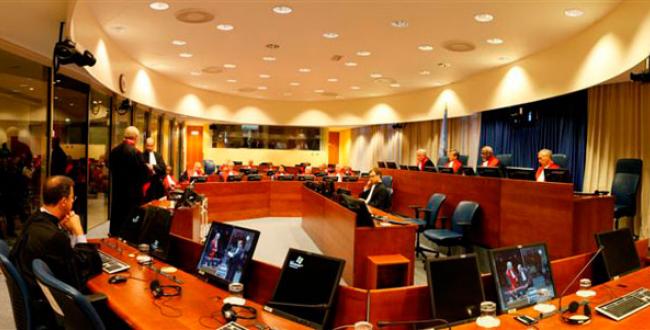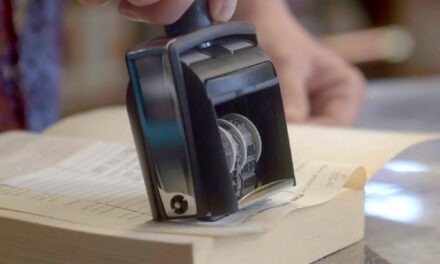Political journalism provides an ideal illustration of the contradictions and extremes of the British news media. No other group of correspondents are so open to manipulation yet so determined to prove their independence by influencing and, whenever possible, by driving forward the news agenda.
Opinionated commentaries and a great tradition of campaigning journalism are a hallmark of the British press. When reinforced by the constant push for exclusive agenda-setting setting stories, the impact can be pretty potent.
However, because the politicians believe they have no alternative but to try to thwart and counteract the aggressive and often irresponsible behaviour of the media, it is no wonder the rival political parties have become increasingly reliant on the black arts of political spin. Britain’s advertising and public relations industries are considered to be among the most imaginative in the world and there is no doubt that the spin doctors who inhabit Westminster and Whitehall are some of the most inventive.
But news-making rather than news-reporting has become an overriding objective of most of Britain’s national newspapers and what has so distinguished them over the decades from their counterparts in Europe and in much of the English speaking world, has been the highly- politicised nature of their day-to-day coverage.
British political life has undoubtedly been enlivened by the promiscuity of press proprietors who think nothing of switching allegiances once a general election is in the offing. A mass circulation newspaper which was quite prepared to collude with the government of the day for the first half of a Parliamentary term might just as easily spend the other half being the administration’s fiercest critic. Not surprisingly in return for their much sought after patronage and support, the media companies have no hesitation in using their influence behind the scenes to lobby on behalf of their own commercial interests.
In an ever-desperate attempt to manipulate the news headlines, successive governments have tried to co-operate not only with the national and regional press but also with radio and television services. Exclusive access and information is traded with political journalists and broadcasters in the hope of gaining favourable publicity.
Within months of becoming Tony Blair’s press secretary in Downing Street, Alastair Campbell issued a new edict to government information officers. They were told in November 1997 that it was their job to “grab the agenda”: ministerial announcements should be trailed in advance; selected news outlets were to be given background briefings on an off- the-record basis.
By increasing the flow of confidential data from the state to the media, the government has weakened the authority of the Houses of Parliament but it has been a win, win situation for journalists. Nonetheless the rapid growth in the number of stories based solely on un-attributable sources has blighted the reputation of political reporting and made it all the easier for correspondents to manufacture their own story lines.
Here we see the real threat of a biased media and the damage which it can inflict on the democratic process. The dividing line between straight and slanted reporting is nothing like as clear as it once was and political journalists writing for the national press are under increasing pressure to reflect the political beliefs and agendas of their proprietors. While editors and journalists would deny that their freedom has been curtailed, the policy positions adopted by the proprietors can become an editorial straight-jacket imposing a pre-determined story line which cannot be ignored.
Little can surpass the achievement of Blair and Campbell in persuading Rupert Murdoch to abandon his support for the Conservative Party just before the 1997 general election and to use his biggest-selling daily paper The Sun to back New Labour. Blair’s subsequent decade in power became infamous for the degree of collusion between a British Prime Minister and the media magnate who had taken to describing himself as the “globe’s leading publisher of English-language newspapers”. The Blair-Murdoch relationship was a stain on the much-touted freedom of the press and a stark illustration of a worrying reality: there are some significant no-go areas for many British journalists.
Murdoch’s four national newspapers (The Sun, The Times, News of the World and Sunday Times) have a 42 per cent share of the market and to varying degrees they have each been both anti-European and pro-war, a stance which has had a considerable and continuing influence on the course of British politics. Only now is it possible to write with authority on the hidden manoeuvring behind The Sun’s stoic support for “Our Boys” in Iraq and Afghanistan.
A Freedom of Information request, which was finally released in October 2008, exposed the collusion behind the headlines. In a telephone call in July 2002 – in the lead-up to the American-led attack on Iraq – Murdoch “praised the Prime Minister for his position on Iraq” and promised that his newspapers would “strongly support” the government’s decision to send British troops to join the US invasion.
An earlier conversation explained what had helped to cement a relationship which would prove of great value to Blair in the face of mounting opposition to the Iraq war. In a conversation in January 1998 – less than a year after being elected Prime Minister — Blair told Murdoch he was “instinctively sympathetic” towards plans by Sky television to establish interactive digital satellite services despite the opposition of the European Commission.
Newspaper barons of yesteryear benefited from similar access but few have enjoyed the lasting influence which Murdoch has achieved in limiting, for example, the extent of British co-operation with the European Union. His long-standing opposition to EU interference in media businesses has had the vociferous backing of both The Sun and the equally Euro-sceptic Daily Mail.
So great has been effect of their constant barrage of anti-European propaganda that support for EU membership is lower in the UK than in any other member state. Against his better judgement Blair was left with little option but to give a manifesto pledge in the 2005 general election that his government would hold a referendum on a new European constitution (an undertaking which Labour failed to deliver and which the Conservatives say they will honour).
The level of hostility which leading media proprietors have helped to engineer shows no sign of diminishing and it has influenced the outlook of a generation of reporters with the result that there are rarely any positive stories in the British press about the work of the European Commission or European Parliament.
Because so much of the government’s communications effort is concentrated on trying to influence news outlets on an individual rather than a collective basis, group briefings no longer have the same status as in previous years. Twice-daily lobby briefings are still held for political correspondents at Westminster but they have become little more than a notice board for official announcements.
Because Blair and Gordon Brown, his successor as Prime Minister, decided instead to hold regular televised news conferences in an effort to command the agenda, the tradition of organising group briefings on an off-the-record basis for political correspondents and other journalists covering Whitehall has fallen into disrepute.
On entering Downing Street Blair doubled and then trebled the number of ministerial special advisers; most them became political spin doctors. Originally they were firmly under the leadership of Alastair Campbell but as Blair’s authority declined, the government gradually lost control over the flow of information and the subsequent growth in the number of unofficial briefings and leaks has again benefited journalists rather than politicians.
Political stories based on anonymous sources are commonplace but the blatant manufacture of quotations and the lack of attribution for facts and figures has become a cancer eating away at the credibility of British political journalism.
Posted: 2 January 2009




